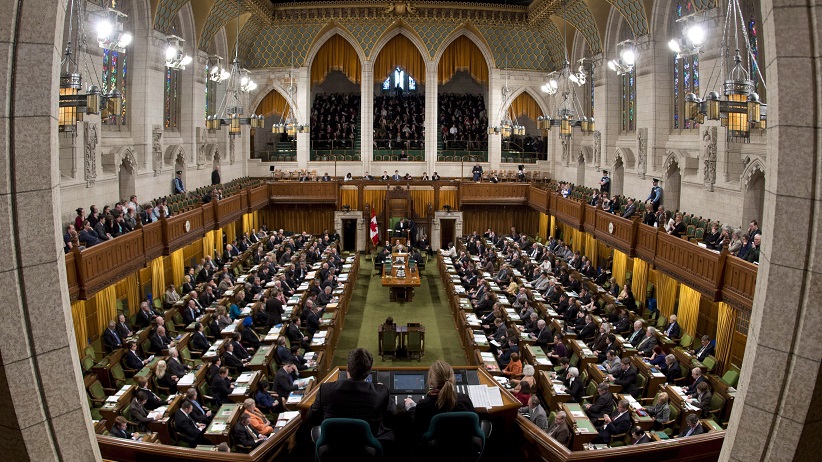What of that $15-billion arms deal with the Saudis?
On this day, MPs were mostly silent about Canadian-brokered deal with the repressive Middle Eastern regime
Share

Think about everything you see as you make your way to work every morning. You definitely see women driving cars, even though they’re not men. If you pass a legislature, you might see protesters doing their thing, even though they’re saying awful things about someone in power. If you’re in the nation’s capital with some time to kill before your shift starts, and you have a hankering for a (sort of) celebrity trial, you can sit in on #duffytrial’s second act, which opens at the downtown Ottawa courthouse on June 1.
All of this is normal, even mundane. But much of it is illegal, or basically impossible, in other places. Let’s play a game called Guess the Country, based on the observations of Human Rights Watch:
[Citizens] are increasingly and openly discussing government affairs on Twitter and Facebook-a ban on women driving, arbitrary detention of peaceful dissidents and terror suspects, and corruption, among others-but the government in 2011 banned public protests, tightened press laws, and arrested scores of peaceful rights advocates and protesters. [This country] struggles with a poorly defined and nontransparent justice system based on religion that metes out draconian sentences. Women and minority Shia citizens face systematic discrimination. Immigration and labor restrictions on migrant workers facilitate widespread abuse.
The country: Saudi Arabia. Admittedly, the game wasn’t all that difficult. The repressive regime that rules in Riyadh is legendary and a constant international hallmark of realpolitik at work: the government may be terrible with human rights, but it’s a stable regime that’s “friendly” to western interests in a part of the world where stable, “friendly” regimes are hard to come by. That explains HRW’s last sentence in its overview of the country’s record: “Western countries remained largely silent about poor rights conditions in the kingdom.”
Canada’s opposition parties have persistently demanded the feds call for the immediate release of Raif Badawi, a Saudi Arabian blogger who’s serving a 10-year prison sentence accompanied by 1,000 lashes. Badawi’s family fled to Quebec in 2013. Whenever the opposition brings up Badawi, the government’s talking points respond.
“Mr. Speaker, we have repeatedly and publicly expressed Canada’s strong objections to the imprisonment and punishment of Raif Badawi,” said Tory MP Bernard Trottier on May 8, in response to Liberal MP Irwin Cotler’s question. “We will do so again today. Canada considers Mr. Badawi’s sentence to be a violation of human dignity. We will continue to call for clemency in this case. We have made representations to Saudi Arabia’s ambassador here in Ottawa, and Canada’s ambassador in Riyadh has met with senior Saudi representatives a number of times. We have also registered our government’s concerns with the Government of Saudi Arabia. This will continue going forward until clemency is granted.”
Meanwhile, as the government “registered” its “concerns” with the Saudis, a Canadian crown corporation was working on an arms deal with the same country. And this wasn’t a small-time deal. The Canadian Commercial Corporation is brokering a $15-billion deal that would send a bunch of Canadian-made light armoured vehicles for service in Saudi Arabia. The Globe and Mail reports that the feds won’t release any human-rights assessments conducted in advance of the arms deal, which is apparently the biggest brokered by the Canadian government.
The arms deal has only entered Hansard because a pair of NDP MPs tabled petitions condemning it. Perhaps someone will deign to ask the government about all those LAVs on the way to the Middle East.